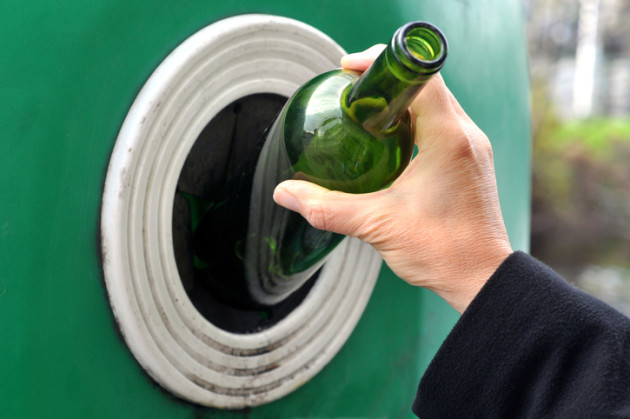
Scottish businesses brace for divisive DRS
With news of the cost of living crisis and staff shortages in hospitality dominating headlines in the industry of late, the issue of the Deposit Return Scheme (DRS) in Scotland has taken a back seat.
However, with the 16 August 2023 launch date looming large for many businesses north of the border, questions are being asked about the scheme and how it might impact Scottish businesses.
According to the Scottish government, the DRS, which was passed by parliament in 2020, will “help improve quality and quantity of recycling, reduce litter and achieve our climate change targets,” a very worthwhile proposal in theory.
- READ MORE: 50 Best Indies 2023: The full rundown
The scheme will charge Scottish consumers 20p for a single-use drinks container whether clear plastic, a can or glass which they can then get back when the container is recycled at a return point.
It seems that the majority of the public is in favour of the scheme, at least that’s according to a poll commissioned by campaign group Nature 2030, which found that 75% of the 2000 respondents want glass to be included in DRS schemes.
This is in stark contrast to the views of many Scottish businesses, including that of Peter Wood, CEO of St Andrews Wine Company.
Last week he told the Scottish Daily Express: “One of my suppliers has already had 11 producers tell him to not supply to Scotland because they can’t be bothered with the hassle of a market with only 5.5 million people in it. This means that 34 products I currently stock will be lost in August.”
For Joe Public, the scheme has the appearance of a worthwhile initiative that will make a positive contribution to the environment. However, a closer examination of the legislation reveals the administrative and financial burden Scottish businesses are likely to face as a consequence of the scheme.
For instance, the implementation of barcodes on individual bottles is expensive and impractical given the frequency with which batch bottles change for different vintages and production cycles.
Further still, the system has faced multiple delays, leaving many businesses feeling underprepared to comply with the August start date.
In his New Year message, David Lonsdale, director of the Scottish Retail Consortium said the cost of lost deposits could amount to £110 million in the first year alone.
Lonsdale bemoaned the “lack of rudimentary information from those running the scheme” and said retailers were “working hard” to be ready for the DRS launch.
According to ICIS analysis, the highest PET bottle collection rates have been found in countries operating DRS, with the top six highest rates ranging from 80% to 97%.
However, data from RECOUP shows that the UK’s household collection rate for PET (Polyethylene terephthalate, recyclable plastic) has reached 75% without a DRS.
In a statement, the Scottish government said: “Scotland’s deposit return scheme will recycle billions of bottles and cans and forms a vital part of our plans to create a circular economy. It will cut climate emissions, tackle littering and directly address public concerns about the impact of plastic and other waste on our environment.
“Roll-out of the scheme is being led by Circularity Scotland Ltd, which is a private non-profit company that was set up by producers, retailers and wholesalers. Industry is making good progress on delivery of the scheme, which will go live across Scotland on 16 August.
“We are aware of business concerns on some outstanding issues, particularly given the very significant pressures everyone is facing during the current cost of living crisis. We have committed to a pragmatic approach to implementation and are taking action to help make the scheme more efficient and reduce costs.”
Keywords:
- drs
- deposit return scheme
- ICIS
- RECOUP
- Scottish Retail Consortium
- David Lonsdale
- St Andrews Wine Company
- Peter Wood




